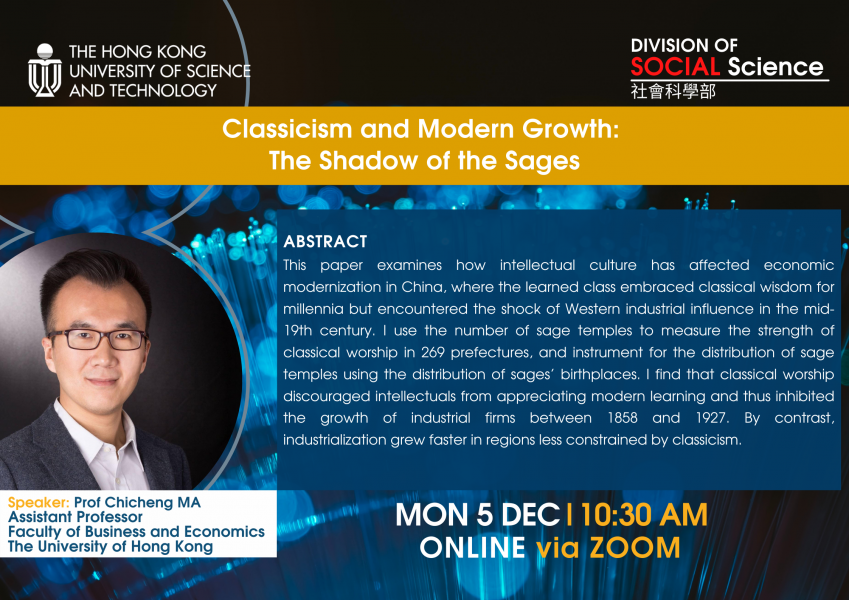This paper examines how intellectual culture has affected economic modernization in China, where the learned class embraced classical wisdom for millennia but encountered the shock of Western industrial influence in the mid-19th century. I use the number of sage temples to measure the strength of classical worship in 269 prefectures, and instrument for the distribution of sage temples using the distribution of sages’ birthplaces. I find that classical worship discouraged intellectuals from appreciating modern learning and thus inhibited the growth of industrial firms between 1858 and 1927. By contrast, industrialization grew faster in regions less constrained by classicism.
Chicheng Ma is assistant professor of economics at the Faculty of Business and Economics, University of Hong Kong. He graduated from the Social Science Division of the Hong Kong University of Science and Technology in 2011, and served successively as assistant and associate professor at the School of Economics, Shandong University, before joining the University of Hong Kong in 2017.
Chicheng’s research areas are development economics, cultural economics, political economy, and economic and financial history. His research focuses on the roles of culture, institutions, and human capital in shaping long-term economic and financial development. He has published his works in leading journals in economics, economic history, and finance. He won the Royal Economic Society Prize for the best paper published in the Economic Journal in 2020 and the Economic History Association’s Arthur H. Cole Prize for the best article in the Journal of Economic History in 2022.
Remarks
- ZOOM link will be sent via email, for HKUST members ONLY
- Please use your HKUST ITSC account to join the zoom meeting.
- This meeting is being recorded. By joining, you are giving consent for this meeting to be recorded.

